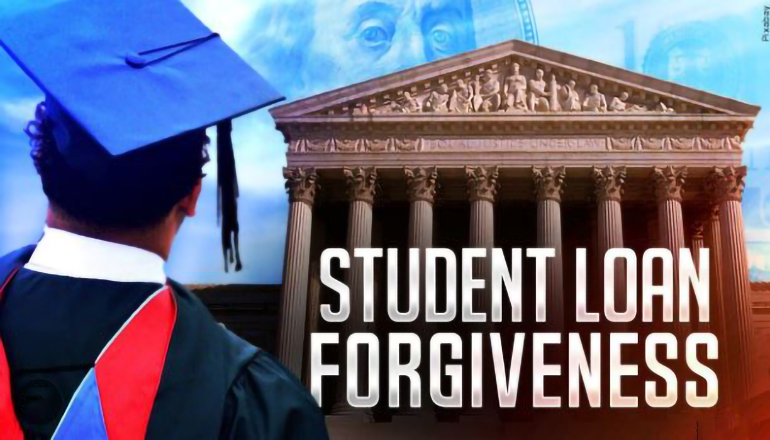The United States Supreme Court has upheld a court order obtained by Missouri Attorney General Andrew Bailey at the Eighth Circuit Court, blocking the Biden-Harris Administration’s most recent attempt to cancel student loans. Not a single justice dissented in this decision.
“This is the second time the Supreme Court has sided with my office against one of Joe Biden and Kamala Harris’ unlawful student loan cancellation schemes,” said Attorney General Bailey. “This court order is a stark reminder to the Biden-Harris Administration that Congress did not grant them the authority to saddle working Americans with $500 billion in someone else’s Ivy League debt. This is a huge win for every American who still believes in paying their own way.”
The Eighth Circuit upheld the Eastern District of Missouri’s initial preliminary injunction and extended it further, ruling that: “The Government is, for any borrower whose loans are governed in whole or in part by the terms of the Improving Income-Driven Repayment for the William D. Ford Federal Direct Loan Program and the Federal Family Education Loan (FFEL) Program, 88 Fed. Reg. 43820, enjoined from any further forgiveness of principal or interest, from not charging borrowers accrued interest, and from further implementing SAVE’s payment-threshold provisions. This injunction will remain in effect until further order of this court or the Supreme Court of the United States.” The Supreme Court has now confirmed this injunction will stay in place.
In 2023, the United States Supreme Court ruled in favor of Attorney General Bailey’s initial challenge to the Biden Administration’s student loan cancellation plan. In a 6-3 decision, the Court deemed the Biden Administration’s plan unconstitutional, citing a significant $430 billion-plus impact on the federal budget without explicit authorization from Congress. The Court found that Missouri’s student loan servicing entity, MOHELA, was considered an extension of Missouri’s state government, granting the state the standing to challenge the plan.
Attorney General Bailey was joined in this legal battle by the attorneys general of Arkansas, Florida, Georgia, North Dakota, Ohio, and Oklahoma.
In their lawsuit, the states argued, “Just last year, the Supreme Court struck down an attempt by the President to force teachers, truckers, and farmers to pay for the student loan debt of other Americans—to the enormous tune of $430 billion. In striking down that attempt, the Court declared that the President cannot ‘unilaterally alter large sections of the American economy.’ Undeterred, the President is at it again, even bragging that ‘the Supreme Court blocked it. They blocked it. But that didn’t stop me.’”
The states further claimed, “Yet again, the President is unilaterally trying to impose an extraordinarily expensive and controversial policy that he could not get through Congress. This latest attempt to sidestep the Constitution is only the most recent instance in a long but troubling pattern of the President relying on innocuous language from decades-old statutes to impose drastic, costly policy changes on the American people without their consent.”
The Supreme Court’s full order is available here.
The Eighth Circuit’s original order can be accessed here.
The Eastern District of Missouri’s ruling is accessible here.
The original lawsuit can be reviewed here.


